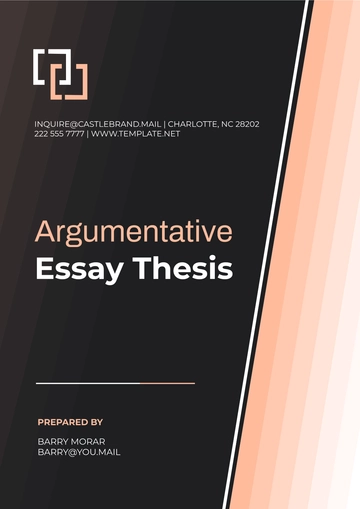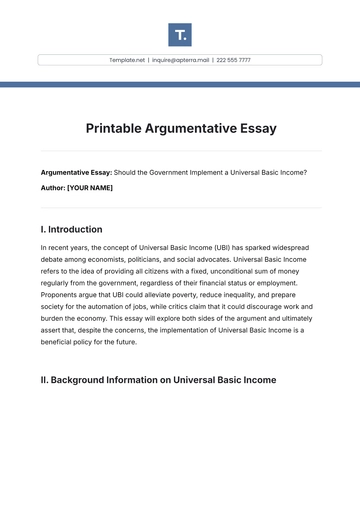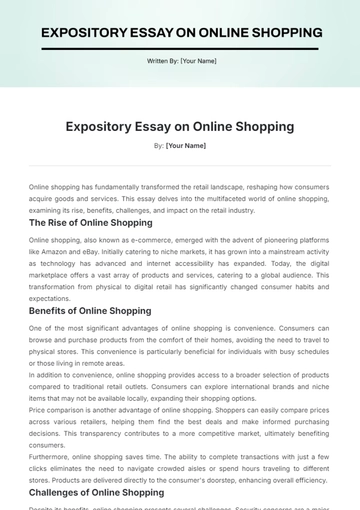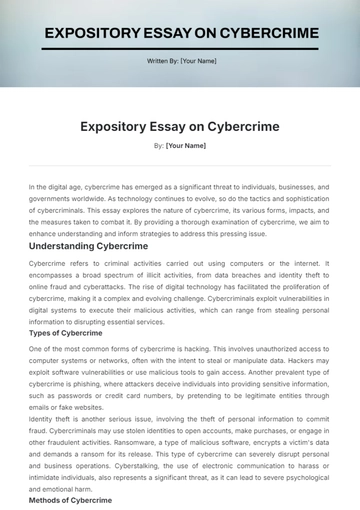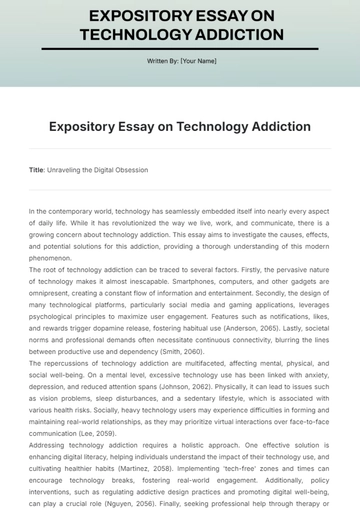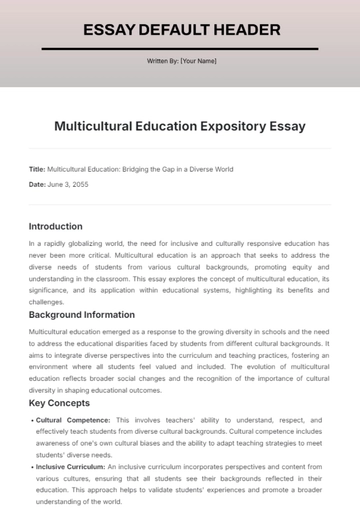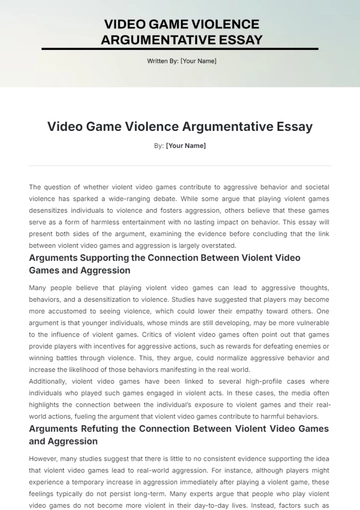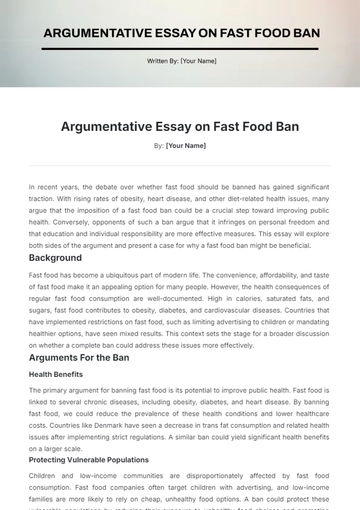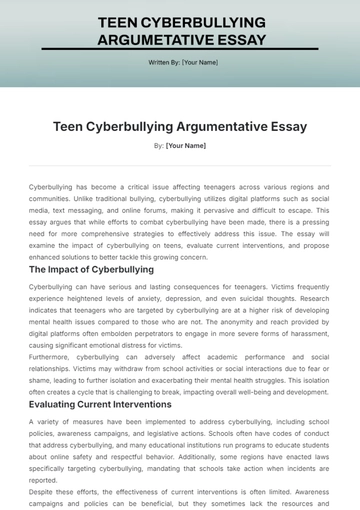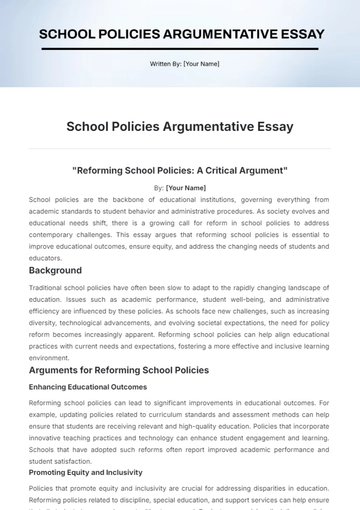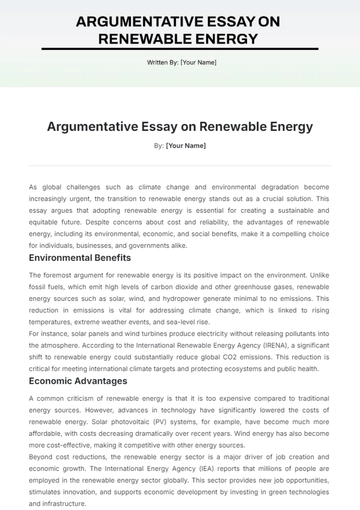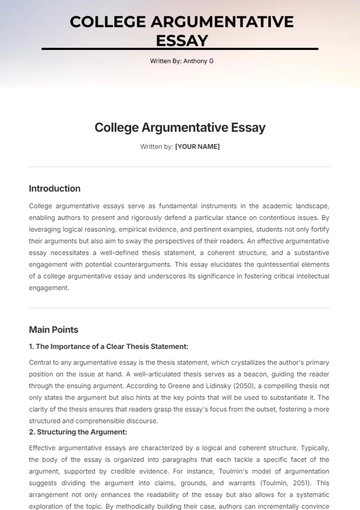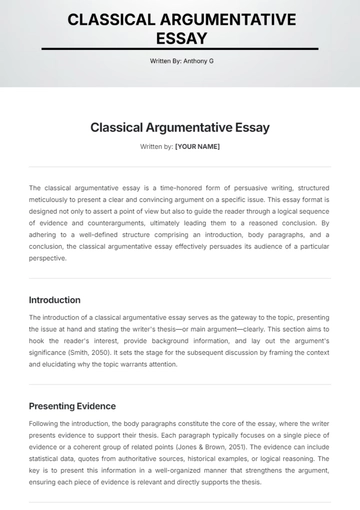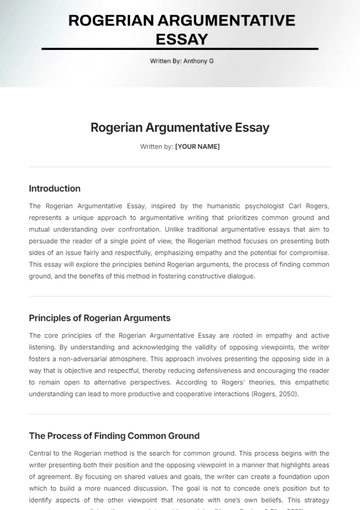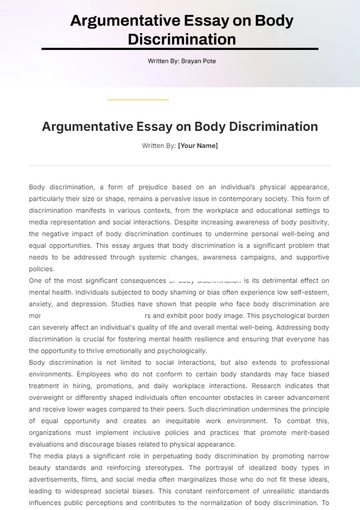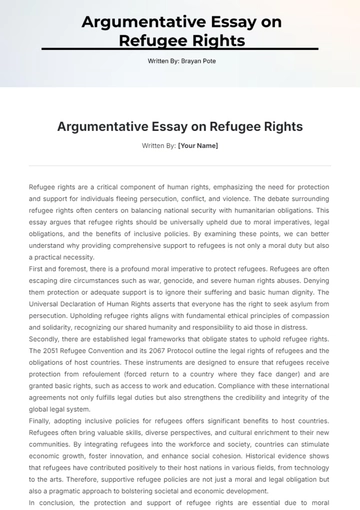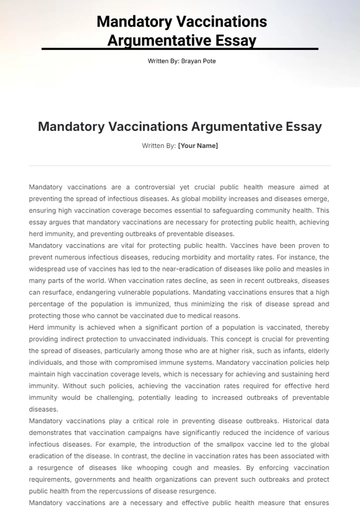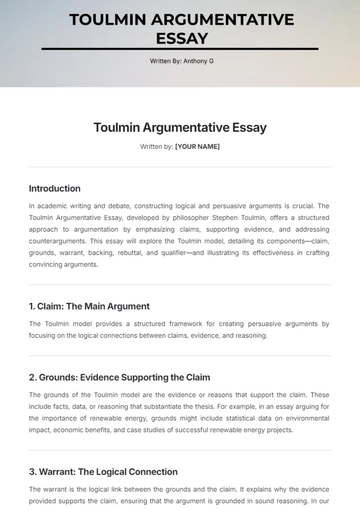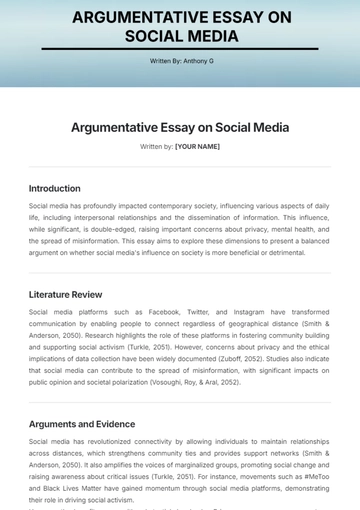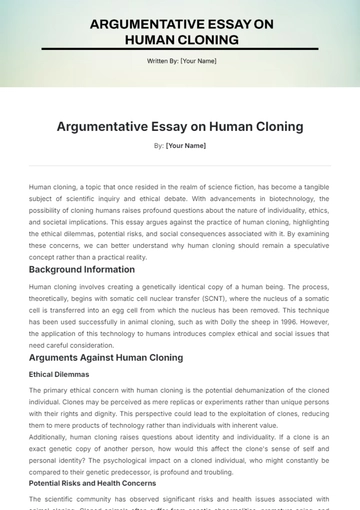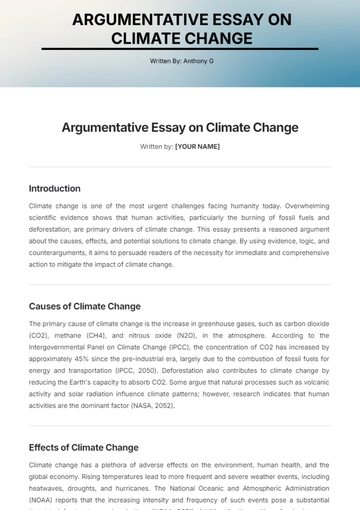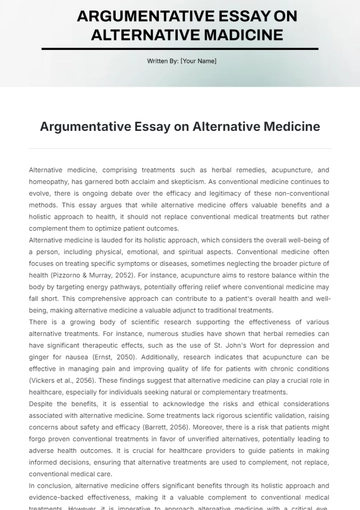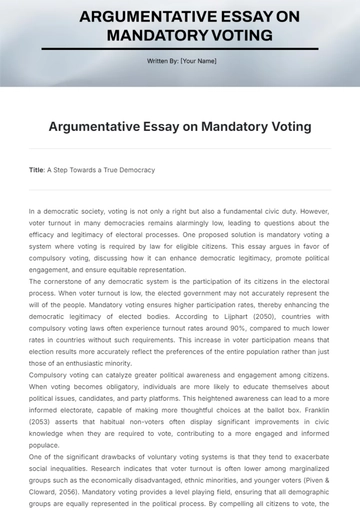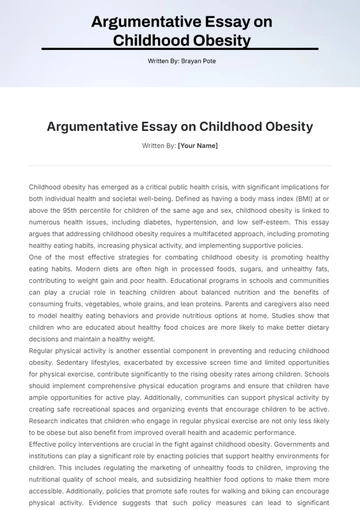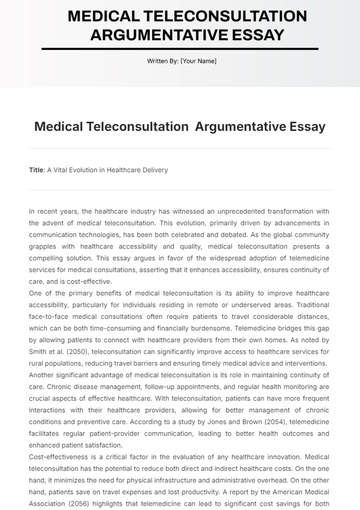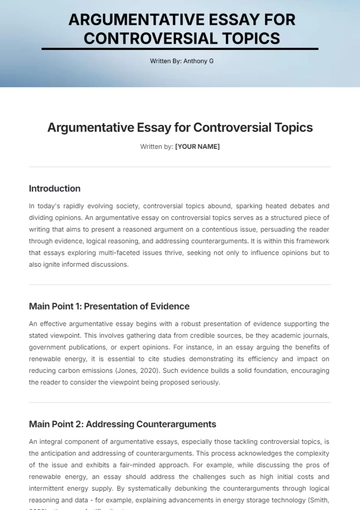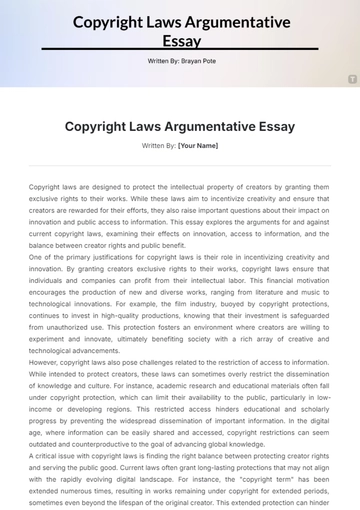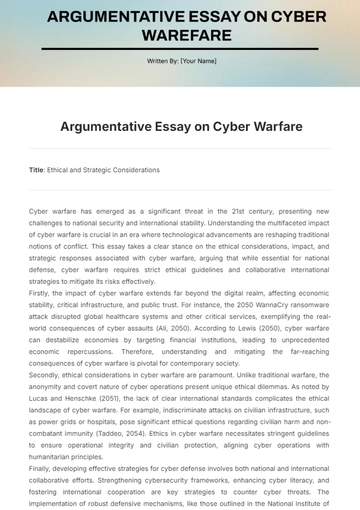Free Argumentative Essay on Social Media
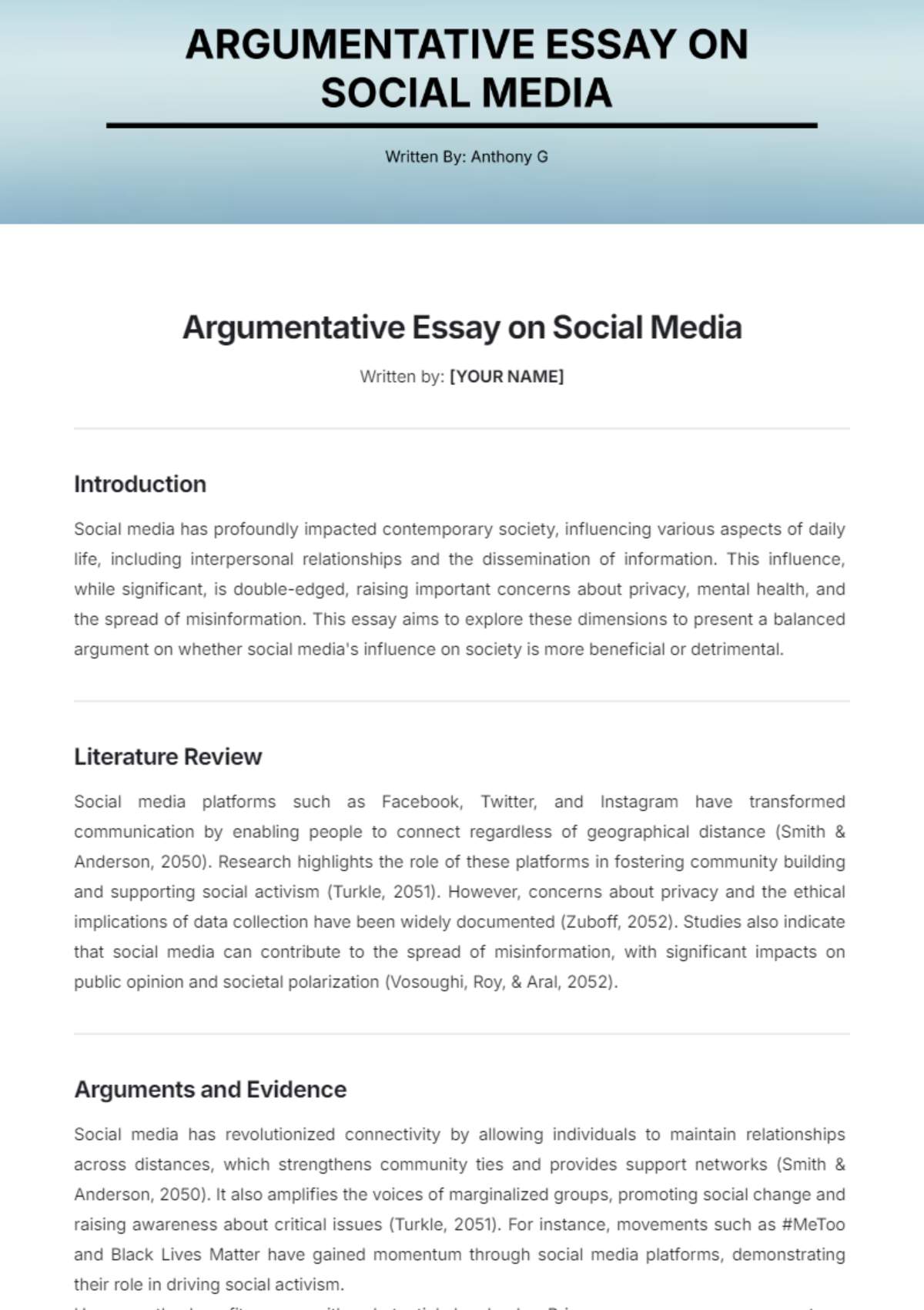
Written by: [YOUR NAME]
Introduction
Social media has profoundly impacted contemporary society, influencing various aspects of daily life, including interpersonal relationships and the dissemination of information. This influence, while significant, is double-edged, raising important concerns about privacy, mental health, and the spread of misinformation. This essay aims to explore these dimensions to present a balanced argument on whether social media's influence on society is more beneficial or detrimental.
Literature Review
Social media platforms such as Facebook, Twitter, and Instagram have transformed communication by enabling people to connect regardless of geographical distance (Smith & Anderson, 2050). Research highlights the role of these platforms in fostering community building and supporting social activism (Turkle, 2051). However, concerns about privacy and the ethical implications of data collection have been widely documented (Zuboff, 2052). Studies also indicate that social media can contribute to the spread of misinformation, with significant impacts on public opinion and societal polarization (Vosoughi, Roy, & Aral, 2052).
Arguments and Evidence
Social media has revolutionized connectivity by allowing individuals to maintain relationships across distances, which strengthens community ties and provides support networks (Smith & Anderson, 2050). It also amplifies the voices of marginalized groups, promoting social change and raising awareness about critical issues (Turkle, 2051). For instance, movements such as #MeToo and Black Lives Matter have gained momentum through social media platforms, demonstrating their role in driving social activism.
However, the benefits come with substantial drawbacks. Privacy concerns are paramount, as social media platforms collect extensive data from users, often without explicit consent, leading to potential data breaches and unauthorized use (Zuboff, 2052). Furthermore, the prevalence of cyberbullying and online harassment poses significant risks, particularly for younger users who may be more vulnerable (Hinduja & Patchin, 2053). Additionally, the rapid spread of misinformation on social media can distort public perceptions and influence political processes, with algorithms exacerbating the problem by creating echo chambers (Vosoughi, Roy, & Aral, 2054).
Counterarguments
Opponents of the critique on social media argue that these platforms facilitate important social interactions and offer unprecedented access to information. They contend that while privacy issues and misinformation are concerns, they can be managed through improved regulations and digital literacy (Smith & Anderson, 2050). Some suggest that the benefits of social media, such as enhanced communication and democratization of information, outweigh the drawbacks if users and platforms take proactive steps to address these issues.
Conclusion
In conclusion, social media's impact on society is multifaceted, presenting both significant benefits and critical drawbacks. While platforms enhance connectivity and provide a voice to the underrepresented, they also raise severe privacy concerns and contribute to the spread of misinformation. To navigate this dual nature, a balanced approach involving robust regulatory measures and increased user awareness is essential. By addressing these challenges, society can leverage the positive aspects of social media while mitigating its adverse effects.
Bibliography
Hinduja, S., & Patchin, J. W. (2050). Cyberbullying: Identification, Prevention, and Response. Cyberbullying Research Center.
Smith, A., & Anderson, M. (2051). Social media use in 2018. Pew Research Center.
Turkle, S. (2052). Reclaiming Conversation: The Power of Talk in a Digital Age. Penguin Press.
- 100% Customizable, free editor
- Access 1 Million+ Templates, photo’s & graphics
- Download or share as a template
- Click and replace photos, graphics, text, backgrounds
- Resize, crop, AI write & more
- Access advanced editor
Introducing the Argumentative Essay on Social Media Template from Template.net. This editable template is fully customizable to fit your unique needs. Designed to streamline your writing process, it’s editable in our AI Editor too, allowing you to make adjustments effortlessly. Perfect for crafting compelling arguments and ensuring a polished final product.
